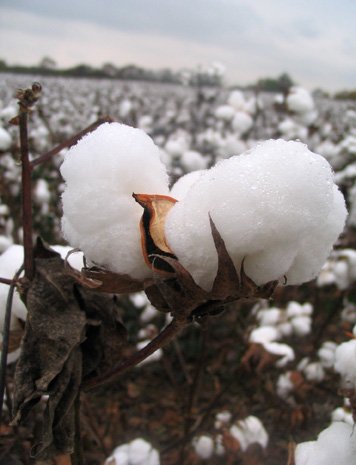
The introduction of Bt cotton in India brought in a humungous change in the country's cotton cultivation pattern. The number of cotton farmers cultivating cotton increased significantly from five million in 2002-03 to eight million in 2011-12 after the introduction of Bt cotton. Notably, the number of Bt cotton farmers increased from 50,000 in 2002-03 to seven million in 2011-12, representing approximately 88 percent of the eight million cotton farmers in 2011-12 (Brookes and Barfoot report, 2012).
India's Agriculture Minister Mr Sharad Pawar praised the introduction of Bt cotton seeds in Parliament this year by saying that it was a great step towards decreasing insecticide usage in the country. "With the use of high quality hybrid cotton seeds, Indian farmers experienced the biggest gain in form of reduced insecticide usage, from 46 percent in 2001 to less than 26 percent after 2006 and 21 percent in 2009 and 2010," he said.
Farm income enhanced by $9.4 billion in the period between 2002 and 2010, and $2.5 billion in 2010 alone (Brookes and Barfoot report, 2012).
"Bt cotton has transformed cotton production in India by increasing the yield, decreasing insecticide applications, and contributed to the alleviation of poverty for over seven million small resource-poor farmers and their families in 2011 alone, and future prospects look encouraging," says Mr Bhagirath Choudhary, national coordinator, International Service for the Acquisition of Agri-biotech Applications (ISAAA).

Dr Arvind Kapoor, CEO, Vegetable division, India-based Rasi Seeds, says due to higher prices of cotton lint and lower costs of cultivation, farmers are earning profits. "That is why cotton sowing has increased and farmers are queuing up for good hybrids," he adds. Expressing a similar opinion, Dr Seetharam Annadana, Traits Development &Vegetable R&D Management Lead, South Asia Syngenta, says, "The best agricultural economist of India is the humble but very intelligent Indian farmer. If he is growing it, he finds value for it and, secondly, there is no better alternative to cultivation of GM cotton at present."
Quoting the report, State of Indian Agriculture 2011-2012, Dr Annadana says, "Bt crop technology has more than doubled India's cotton production. By 2011-12, almost 90 per cent of cotton area is covered under Bt cotton. More such revolutions to accelerate agricultural growth are needed."
Demand to go up
Out of an estimated Rs 8,000 crore seed industry, Bt cotton seed market is pegged at Rs 3,000 crore. As per Cotton Association of India (CAI), the total cotton supply is estimated at 42.55 million bales, while the domestic consumption is estimated at 26.8 million bales, thus leaving 15.75 million bales as opening stock for 2012-13. While India produced 32.5 million bales (170 kg each) with 27.52 million acreage during the season ended September 2011, the next season's (October 2011- September 2012) output is projected to be 35.5 million bales from an acreage of 9.9 million acres (12.1 million hectares). The speedy migration of farmers to cotton from less profitable crops, such as oilseeds and pulses, has added to the forecast.
Ruling out any scarcity of Bt cotton seed currently, Dr Arvind Kapoor of Rasi Seeds is skeptical about the future. "In future there will be chances due to higher costs of production and price control by government on cotton sale," he says.
According to sources, the demand for Bt cotton seeds for the 2012 kharif season is estimated to be 4.5-to-five crore packets, while the estimated stock with the seed companies is four crore packets. Earlier, the demand-supply gap led to black marketing of Bt cotton seeds in many states. Seeds and fertilisers were distributed under police protection in 2008 and 2009 in Maharashtra after riots over seeds purchase. It was alleged that a few seed brands popular with farmers created an artificial shortage leading to strict vigil by the Maharashtra government last year.
Variable seed prices
As compared to other countries planting Bt cotton, India's Bt cottons are unique in the sense that they are hybrids and not varieties. The total value of cotton seed market is said to be around Rs 3,500 crore. According to various reports, the cotton seed prices are fixed in each state depending on whether it is Bt Bollgard-I and Bollgard-II. The price varies in the range of Rs 750 per packet for Bollgard-I and Rs 900 per packet for Bollgard-II. In Punjab, Haryana and Rajasthan, the prices of Bt cotton seeds containing BG-I and BG-II traits are Rs 750 per packet and Rs 920 per packet, respectively. In other states, the prices of BG-I and BG-II cotton are Rs 650 per packet and Rs 750 per packet, receptively. The seed industry associations have requested the government to increase it to Rs 850 and Rs 1,050 per packet each.




